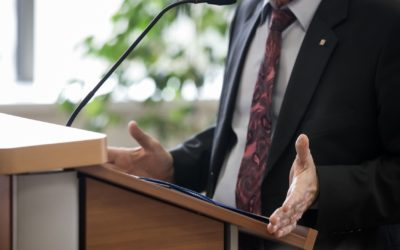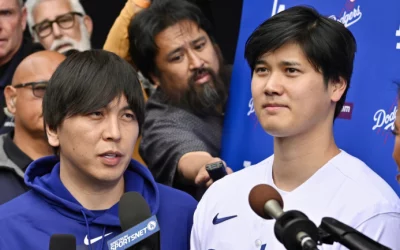#157© Copyright 2009, all rights reserved worldwide. Gambling and the Law® is a registered trademark of Professor I. Nelson Rose, www.GamblingAndTheLaw.com
There is no gambling like politics.
Benjamin Disraeli
On May 6, 2009, three bills were introduced into the U.S. House of Representatives to legalize, tax and regulate Internet gambling. They appear to create a federal regulatory system under the Secretary of the Treasury. Optimistic investors foresee the return of foreign online poker operators, who abandoned the U.S. market after the passage of the Unlawful Internet Gambling Enforcement Act in 2006.
What the bills are actually designed to do is allow Nevada casino companies to take bets from almost all other states, while keeping out their foreign competition. They will do this, although they will also open the door to new, unforeseen competition from American Indian tribes.
As the UIGEA has shown, decisions about what to do about Internet gambling are not often the result of reasoned conclusions made after careful study.
The truth is that almost no one in Congress cares about Internet gambling, with only a few exceptions. There are a couple of “anti’s”, like Sen. Jon Kyl (R.-AZ) and Rep. Frank Wolf (R.-VA). But the elections of 2006 and 2008 have changed the political dynamics. Being opposed by the religious far right can now actually help a bill get votes.
For at least the next two years, the federal government belongs to the Democrats. President Obama may be personally opposed to legal gambling, although he plays poker, but he knows he needs states like Nevada to win elections. He certainly would never veto a bill to regulate and tax gambling passed by the Democratic Congress. But he isn’t really interested in Internet gambling.
In fact, almost no one in government cares about the issue. As a strange coincidence, two of the very few who do are in positions of great power: Barney Frank (D.-MA), chairman of the House Financial Services Committee, and Harry Reid, the Majority Leader of the Senate (D.-NV).
Frank likes the positive attention he has received from such groups as the Poker Players Alliance for spearheading the fight to overturn the UIGEA. But his real motivation is ideological. Although the Chair of Financial Services, in announcing his bills he emphasized not the tax money that would be raised but rather gambling as a matter of personal liberty: “Most actions the government should stay out of.”
Frank has so much seniority, and the Democrats have such an overwhelming majority, that he can get any bill he wants through the House of Representatives. But to become law, the bill also has to pass the Senate. Which means getting by Reid.
Reid says he is does not personally support Internet gambling. But what do his major constituents, Nevada casinos, want?
Opinions vary greatly. Some Nevada operators are making the same mistake they made with Indian gaming, thinking they can stop the tide. Others are positioning themselves for the inevitable future: Harrah’s just announced a major drive to expand their leading brand, the World Series of Poker®, to the Internet, by hiring Mitch Garber, former CEO of PartyGaming, parent of PartyPoker.
The American Gaming Association changed its official position on Internet gaming a few years ago from one of opposition to favoring a study. AGA President Frank J. Fahrenkopf, Jr., announced the casinos’ lobbying group will remain neutral on this latest attempt to legalize Internet gambling.
And that neutrality is the only thing that could defeat these bills. For a bill to get through the crowd of issues awaiting attention in the Senate, it must have an advocate. And no one has stepped forward to take over shepherding the bills, once Frank gets them through the House.
That gives some power to the bill’s opponents. The Republicans, who seem to have decided to simply opposed everything that any Democrat advocates, can prevent a bill from progressing if it has no one pushing it.
More politically significant, organized professional and collegiate sports organizations have come out in opposition to the bills. They sent a bizarre letter to Frank’s Committee, stating the bills would open “the door wide to sports gambling on the Internet.”
Of course, the bills clearly do no such thing. They explicit continue the existing policy of mostly prohibiting sports betting, except for states grandfathered-in under the Professional and Amateur Sports Protection Act and fantasy leagues under the UIGEA, which are already the law.
Probably after the sports organizations get a lawyer to actually read the bills, they won’t waste their money and political resources fighting a battle they have already won.
Whether Nevada casinos will push for these bills in the Senate depends on how they evaluate the future of Internet gambling. Some operators hope there will be more efforts to go after foreign operators. This is not going to happen, now that the Bush Department of Justice is merely a bad memory. Others realize they will never have a better chance to lock in state-regulated online gaming.
And because these bills are designed to get by Harry Reid, they do set up licensing and regulation by states, even though they appear to create a new federal regulatory system.
A state like Nevada can asked to be certified by the U.S. Secretary of the Treasury, and the Secretary has only 60 days to turn it down. Then the state will become both licensor and regulator, with Treasury merely rubber-stamping the state’s decision.
So, Nevada will then start licensing its casinos to take bets online. And its customers will be in every other state, or at least in those states which don’t opt out. Governors have only 90 days after enactment of these new laws to formally request licensed operators to not accept players from their states.
There are wild cards here.
One is taxes. The federal government will get 2% of the amounts players deposit, and the cost cannot be passed on to patrons. Since operators make no money on deposits, only on wagers, this will lead to confusion and attempts to game the system.
And there are no limits on state taxation.
The other unknown is how quickly tribes will understand and take advantage of the wonderful gift they will be given. Tribes are treated in these bills exactly like states. Meaning they can not only opt out, but license operators, including themselves, to take bets from the rest of the United States.
As for foreign operators: The bills provide that no one who “is delinquent in filing any applicable Federal or State tax returns or in the payment of any taxes, penalties, additions to tax, or interest owed to a State or the United States” can get a license. It is possible that the Secretary of the Treasury, who also runs the Internal Revenue Service, could find that an operator that had American players was doing business here, and should have been paying federal, and maybe even state, taxes.
Of course, American companies, like Harrah’s, would have no trouble.
But either would federally recognized Indian tribes.
END
© Copyright 2009. Professor I Nelson Rose is recognized as one of the world’s leading experts on gambling law, and is a consultant to players, industry and government. His latest books, Internet Gaming Law (2nd edition just published), Blackjack and the Law and Gaming Law: Cases and Materials, are available through his website, www.GamblingAndTheLaw.com.





0 Comments